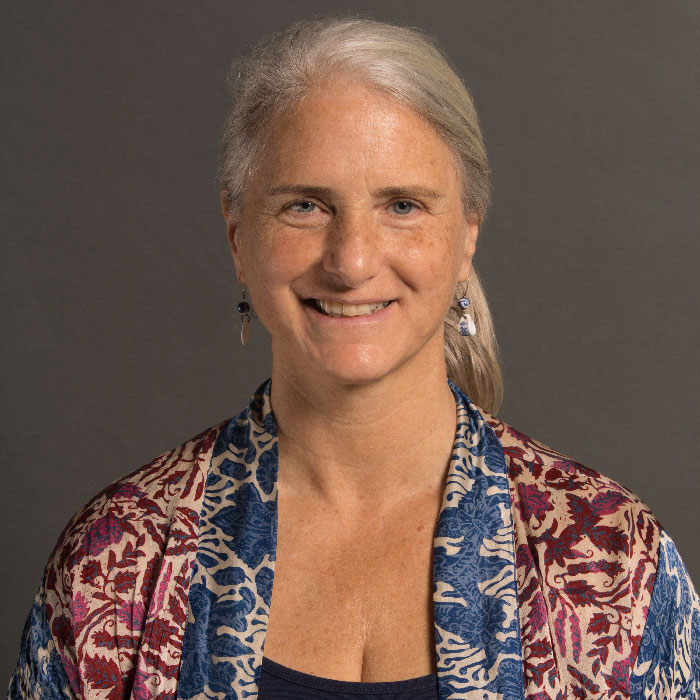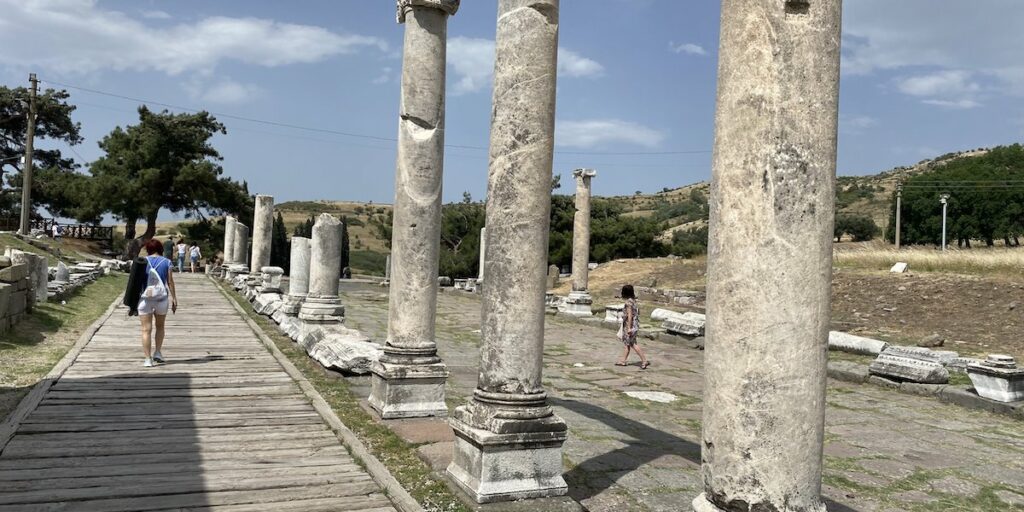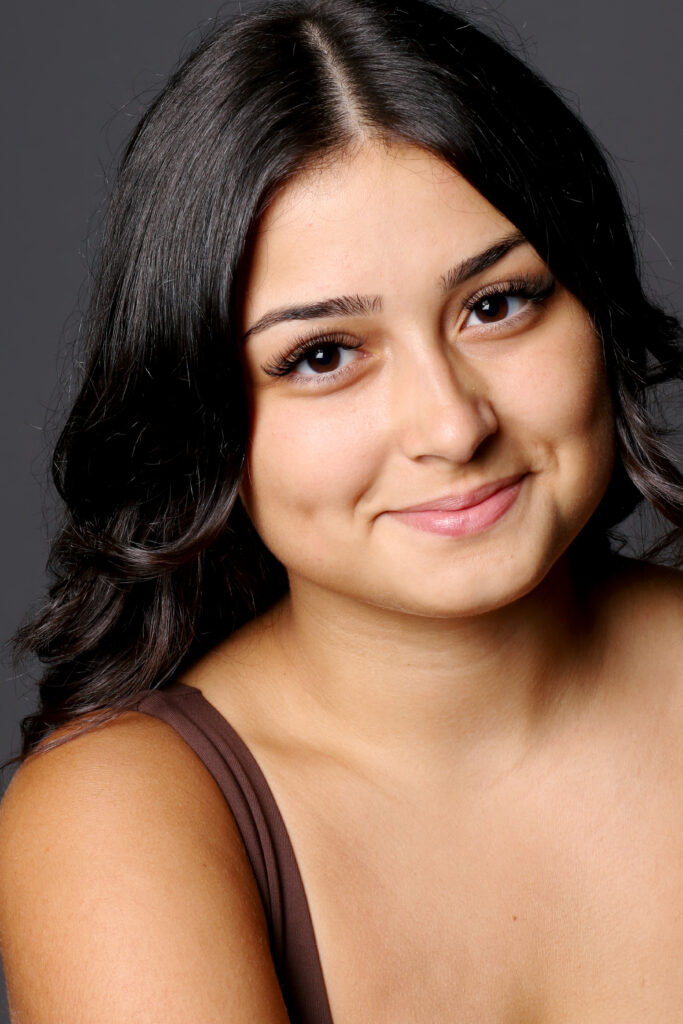
Thanks to York University’s Profesor Erika Batdorf, attendees at the Bergama Theatre Festival in Asclepieion, Turkey, have a treat in store for them this August: a large, site-specific, immersive event with multiple performers placed on location throughout the grounds, known as an ancient healing site. Its aim: bringing the stories of contemporary women to ancient sites where women’s history has often been disregarded and forgotten.
Batdorf is the creator of the Batdorf Technique, an embodied physical theatre practice with which she likes to explore a means of bringing women’s stories back to a site where they have been ignored.

“In visiting ancient sites, I find there is almost no mention of women,” Batdorf said. “The perception is that they are nothing. How do we prevent losing more stories of women?”
Batdorf, together with master of fine arts graduate Gulce Oral, tested a model of this approach in the summer of 2023 in Troy, an ancient archeological site in Turkey made famous in Greek mythology. For a performance project, they asked students from Çannakale Onsekiz Mart University in Turkey to study their grandmothers to learn about the dreams they had as young women, their understanding of freedom and what symbolizes power to them.
In the process, students soon began to see themselves in their grandmothers and – with guidance from Batdorf and Oral – turned these findings into three-minute pieces that they performed live at Troy.
A similar process will unfold in Asclepieion this fall, made possible with funding from the festival and the Canada Council for the Arts, as well as actors, musicians, and puppeteers from Istanbul and areas around Bergama, including local female Romany musicians and Kozak women.
“Our work is devised theatre, rather than text-based,” Batdorf said. “I’m not a historian myself; I’m a contemporary theatre artist, so I know how to devise and create actual, physical theatre that animates a space.”

Among their projects, one will include a piece at Zeus’s temple, which will incorporate stick games played by local women and music by Romany drummers, as a way of reclaiming that space as their own.
Parchment making is being revived locally, too, and one of the sculptural pieces at the festival will be a giant book that holds Turkish stories, recipes and wisdom shared by women with whom they have been meeting.
While ancient sites are less accessible in Canada, Batdorf has involved York students in her performance creation class in a similar project.
In the classroom, for example, she asked her students to each research their mothers and grandmothers before choreographing a piece inspired by their findings – much like the Troy project.
Similarily, next year Batdorf will be leading a group of students in a site-specific project called Haunted Honeywood, working with tales of paranormal occurrences that have occurred in a small town north of Toronto. Batdorf is mentoring them, not only in creation but in grant writing and outreach, skills that will be useful to them in funding their personal performance work in the future.

Kayla Silvestre, an upper-year theatre student, is one of the participants in the Haunted Honeywood project, because she has been influenced by Batdorf’s movement classes and is eager to continue learning from her.
“Her movement class has been the most beneficial acting course of my career,” Silvestre said. “I use 95 per cent of what I learned in my theatre work.”
She says the Haunted Honeywood project will incorporate some of the same principles that Batdorf is using in her work in Asclepieion, allowing people to wander an outdoor path running through the woods, where they’ll encounter guides and ghosts. A writing team is working on stories based on local history and culture, in addition to creating some new stories. The group is also planning to bring workshops to the schools in the area to promote the arts.
The 2025 debut of Haunted Honeywood is still more than a year away, but each of Batdorf’s site-specific works requires time to put all the pieces in place. She has been working toward Asclepieion for three years, yet it will be performed for only three days during this highly respected festival.
“We’ll do the best we can to document the piece,” Batdorf said, “and we hope to have a website to host conversations among local women and others.”
Although the performances are fleeting, for those who participate, either as actors or as visitors, she hopes the experience will be enduring and impactful.
